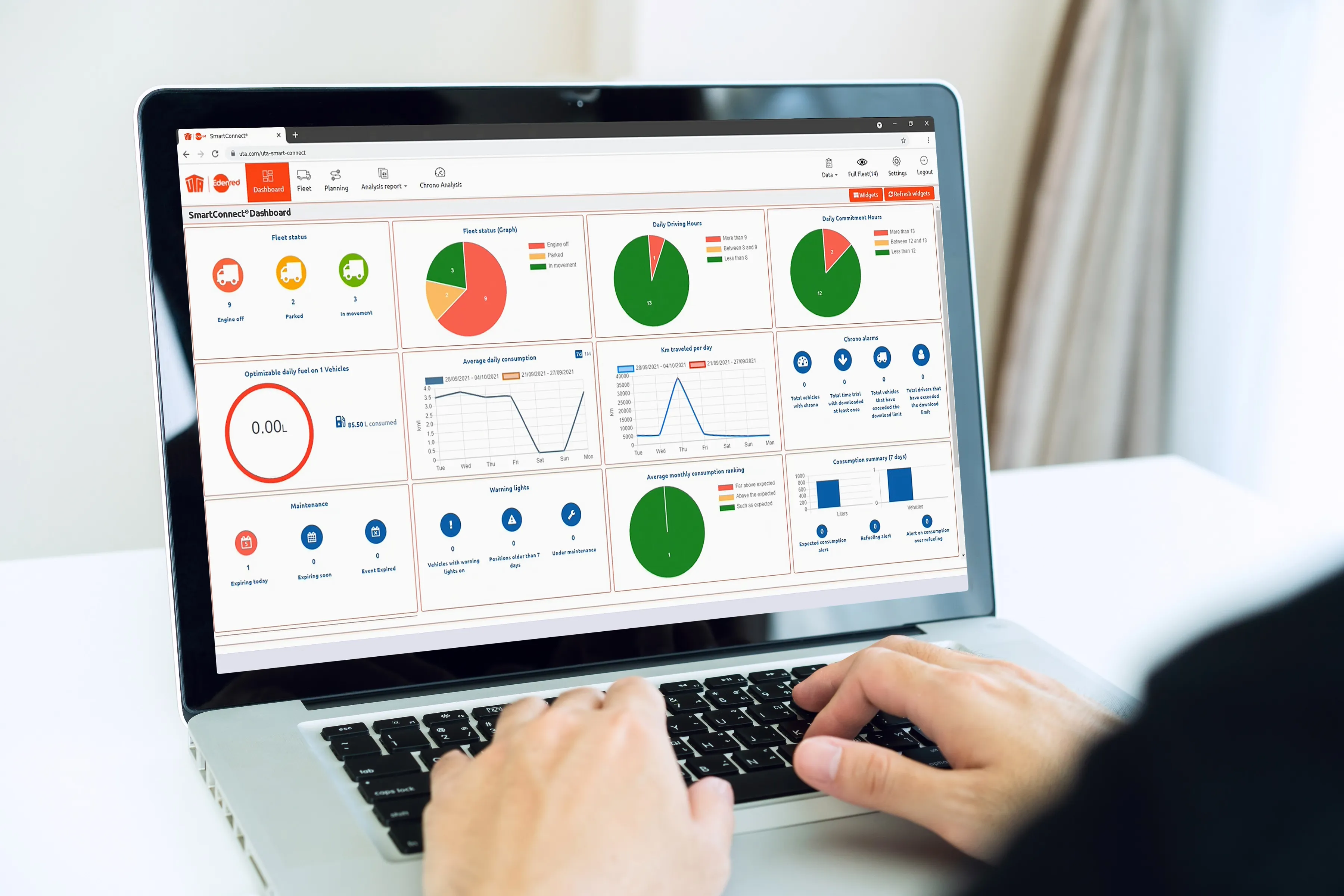Keeping an accurate log of business mileage is made easier by a new app launched by TomTom; the new Webfleet logbook app for Android and iPhone helps drivers and businesses reduce mileage claim administration and creates reliable logs to help with tax compliance. A driver simply selects whether a journey is for business, private or commuting purposes, validating journey information on his mobile device. The app works in combination with the in-vehicle TomTom’s link tracking device which reports the trip inf
January 18, 2013
Read time: 2 mins
Keeping an accurate log of business mileage is made easier by a new app launched by 1692 TomTom; the new Webfleet logbook app for Android and iPhone helps drivers and businesses reduce mileage claim administration and creates reliable logs to help with tax compliance.
A driver simply selects whether a journey is for business, private or commuting purposes, validating journey information on his mobile device.
The app works in combination with the in-vehicle TomTom’s link tracking device which reports the trip information. Company trip records are simultaneously updated in TomTom’s Webfleet fleet management system.
By fulfilling their obligations using their mobile device, before or after journeys, drivers can reduce the laborious paper work traditionally associated with mileage claims.
“By working in conjunction with the in-vehicle link tracking device, the Webfleet logbook app minimises driver involvement, maximising accuracy and reliability to mark a significant advancement from existing GPS smartphone apps.” said Thomas Schmidt, Managing Director, TomTom Business Solutions. “Simplified and automated processes for companies and their drivers frees up valuable time for improved productivity.”
The Webfleet logbook app enables additional information to be added by the driver, including the specific purpose of the journey and customer contact details. The intelligent app also learns from previous driver journeys, automatically suggesting trip information for faster and easier logbook handling.
In addition, employees can register themselves as the drivers of specific vehicles allowing fleet managers to identify exactly who is driving, where and at what time, if proof is needed.
A driver simply selects whether a journey is for business, private or commuting purposes, validating journey information on his mobile device.
The app works in combination with the in-vehicle TomTom’s link tracking device which reports the trip information. Company trip records are simultaneously updated in TomTom’s Webfleet fleet management system.
By fulfilling their obligations using their mobile device, before or after journeys, drivers can reduce the laborious paper work traditionally associated with mileage claims.
“By working in conjunction with the in-vehicle link tracking device, the Webfleet logbook app minimises driver involvement, maximising accuracy and reliability to mark a significant advancement from existing GPS smartphone apps.” said Thomas Schmidt, Managing Director, TomTom Business Solutions. “Simplified and automated processes for companies and their drivers frees up valuable time for improved productivity.”
The Webfleet logbook app enables additional information to be added by the driver, including the specific purpose of the journey and customer contact details. The intelligent app also learns from previous driver journeys, automatically suggesting trip information for faster and easier logbook handling.
In addition, employees can register themselves as the drivers of specific vehicles allowing fleet managers to identify exactly who is driving, where and at what time, if proof is needed.










